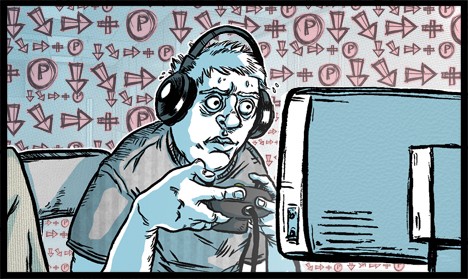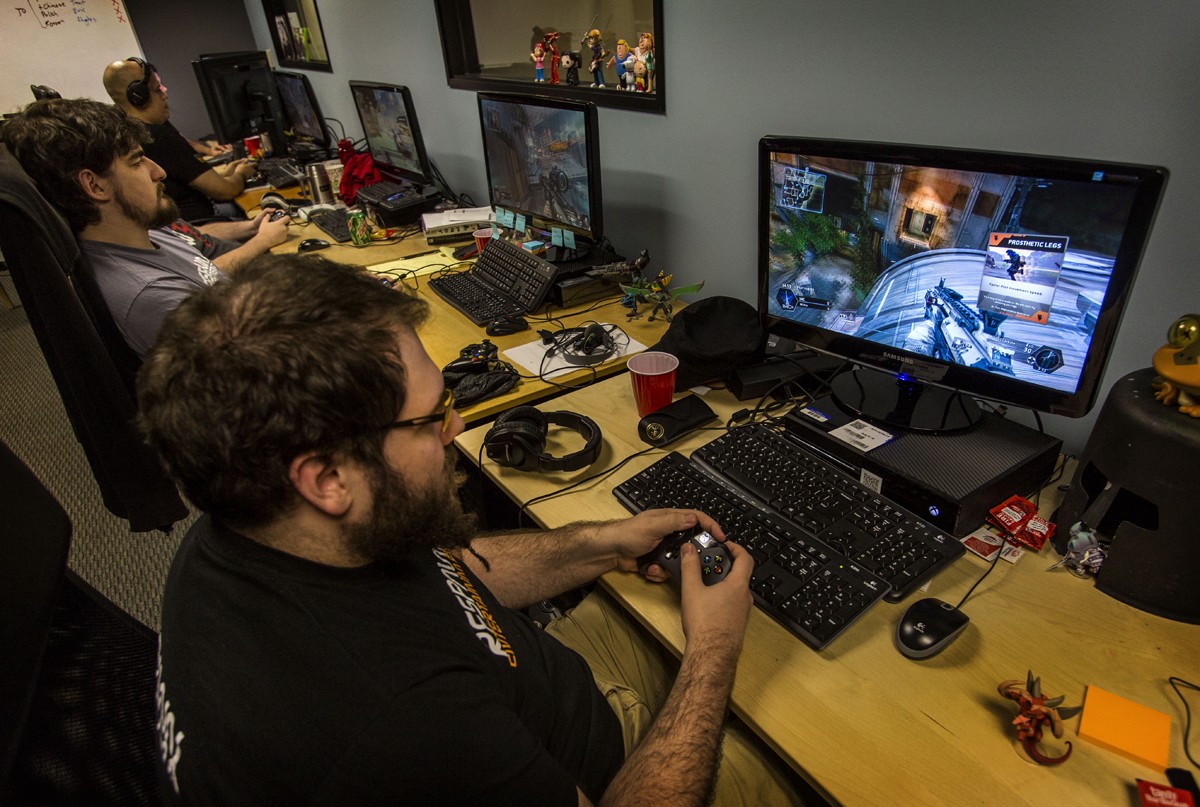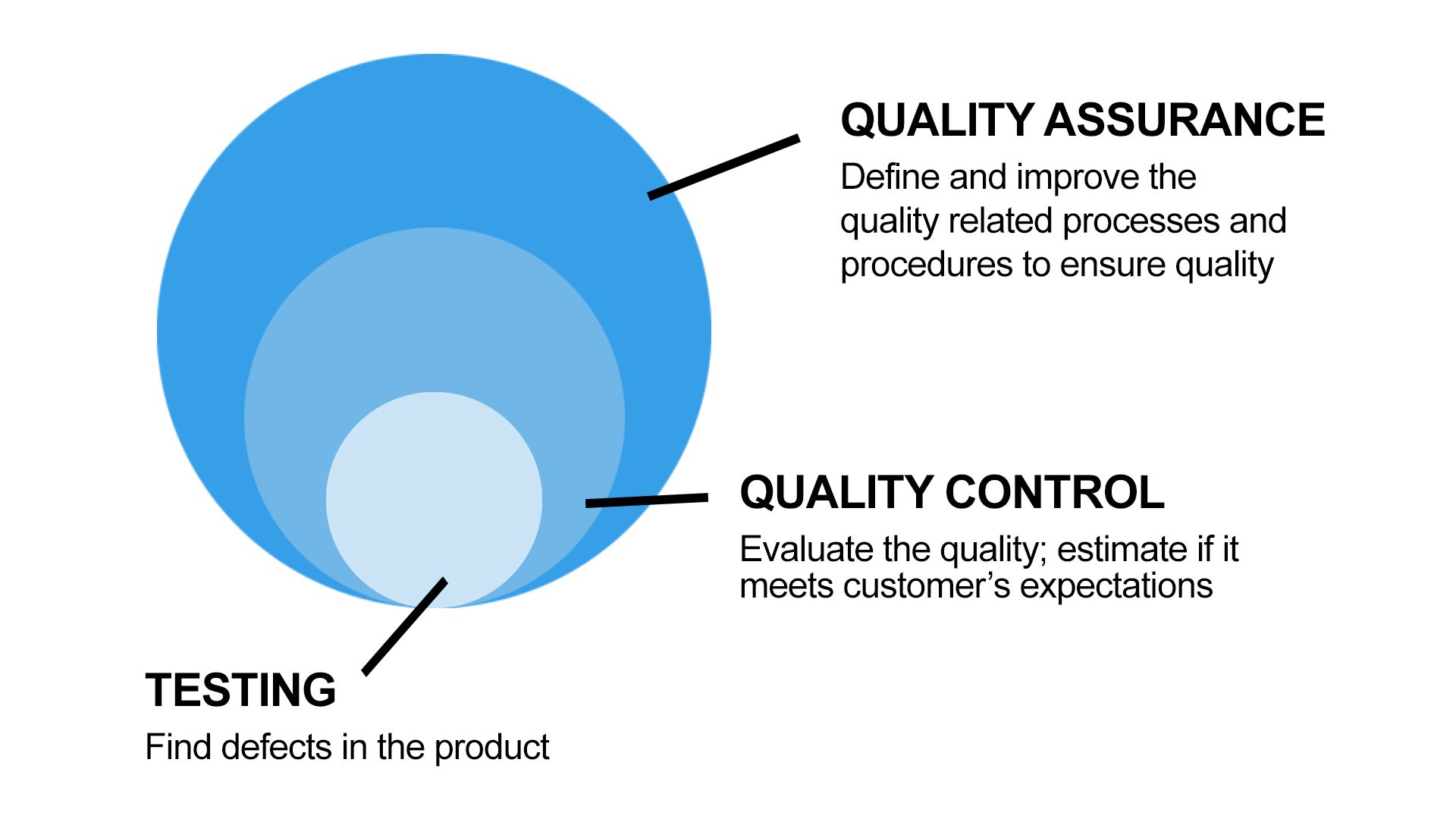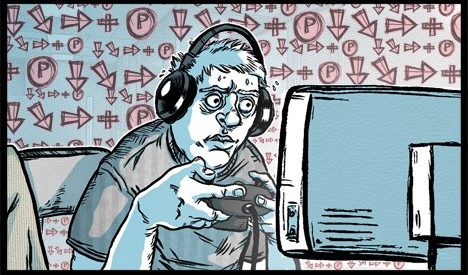
Quality Assurance for games is about finding inconsistencies, glitches, or bugs in the software or game experience. QA involves documenting, reproducing, and reviewing these inconsistencies until they are deemed ok to ship.
Imagine this: you?re an aspiring game developer, fresh out of college, and have managed to land a job at your favorite game company. You couldn?t be more excited to join the team/ Bushy tailed and bright eyed, you walk in on your first day, excited to change the gaming industry as it is known forever with the genius insights you will offer through your newly won position: Quality Assurance Tester.
Record screech. Yeah. If you work in the gaming industry, and you made it past your first day, you know: QA is not a coveted position. In fact, it?s the bottom of the ladder. Maybe even lower than the PA on the production ladder. So it?s no wonder that QA testers, young and hopeful dreamers looking to make a buck or two, after being mistreated by elite game devs who refuse to even look twice at them, they start to shirk their responsibilities.

This is the problem with Quality Assurance.
It came to light with the rise of unionization in the games industry. QA is treated as disposable. And everyone who has been in the game industry knows this.
It isn?t exactly a secret that QA testing requires a lot of time, and that you will probably need to work longer hours, and that chances are you aren?t going to move up in the company while being a QA Tester.
If you are going to graduate within the company from being a QA Tester, you are going to have to be an absolutely amazing QA Tester, happily work overtime, and then with the free time you have left over, prove that you have the skills and know-how to join the development team. That is, if the development team doesn?t dismiss you at first glance.
Now, I can?t actually verify where these myths come from, or what companies perpetuate these cultures, but it is a problem. Not just from the humanitarian perspective of treating all people with dignity and respect, but from the sole fact that QA is separated from the development team.

Game development is supposed to be a collaborative process. QA testing surely is collaboration. To separate the core development team from it quality assurance testers seems like bad game production. If game development is supposed to be a collaborative process, why would you isolate a team dedicated to trying to improve the product?
The answer, unfortunately, is money.
But I am not convinced that this is a satisfactory answer for anyone who loves games and is in the gaming industry.

Imagine a QA department that integrates with the development team. Where it?s not just QA Testers mindlessly reproducing bugs, but an intelligent and coordinated effort to eradicate inconsistencies in the design, improve the game, and build professional credit.
This isn?t to say that all game companies don?t do this. Some of the best do appreciate and properly utilize their QA department. Some QA professionals do have input on how the game is designed and developed. For a while this is what I wanted to build my skills in, good and effective quality assurance. But, when the majority of QA is viewed as this toxic work environment, it doesn?t seem like quality assurance is a worthwhile skill to develop.

This is what I consider to be the biggest problem with QA.
With any other discipline, the goal is to get better at your craft, but with QA the goal is to get out.
Obviously, it is a problem that people aren?t treated well in QA, but if QA impacts and supports the development team?s decisions, QA should naturally be treated well.
This is what I see as the fundamental flaw of getting rid of talented employees. When people get burnt out, or when you just get rid of them, you have to retrain and invest in new people who have to re-learn how to do the job effectively.

QA does currently require skills that are in demand. If we increased the responsibilities of QA we could increase the skill ceiling and maybe even skill floor of the job. Why isn?t QA considered to be just as important as the other disciplines in game development? Why does QA have a bad reputation, and why don?t people want to be the best professional game QA Manager or QA Tester? I hypothesize that it is because of the culture that has been perpetuated around the role of QA, and I propose that individuals who work in the gaming industry mobilize to change this culture. Quality Assurance is a worthwhile pursuit in the field of gaming. It is good business and egalitarian to ensure that players get a quality game that works as intended.
There are certainly a lot of problems within the gaming industry right now, but this problem is worth tackling because it relies on developers integrating with employees in QA. Why wouldn?t developers want more insight from their QA team? There is no scenario where promoting communication between QA and development teams doesn?t positively impact the industry.


